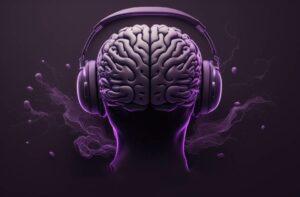Anxiety is a normal and often healthy emotion characterised by feelings of worry, unease, or fear. However, when a person regularly feels disproportionate levels of anxiety, it might become a medical disorder. Anxiety disorders lead to excessive nervousness, fear, apprehension, and worry. These disorders alter how a person processes emotions and behaves, also causing physical symptoms.
Common anxiety signs and symptoms include feeling nervous, restless, or tense, having an increased heart rate, breathing rapidly (hyperventilation), feeling weak or tired, trouble concentrating, experiencing gastrointestinal problems, and having difficulty controlling worry.
Many forms of anxiety disorders exist, including generalized anxiety disorder, panic disorder, and various phobia-related disorders. Generalised anxiety disorder is characterised by chronic anxiety, exaggerated worry and tension. Panic disorder involves recurrent, unexpected panic attacks, and sudden feelings of intense fear. Phobia-related disorders are characterised by intense fear of a specific object or situation.
Anxiety disorders are generally treated with psychotherapy, medication, or both. There are many ways to treat anxiety and people should work with their doctor to choose the treatment that is best for them. Cognitive Behavioral Therapy (CBT) is a type of psychotherapy that can help people with anxiety disorders. It teaches a person different ways of thinking, behaving, and reacting to anxiety-producing and fearful situations.
Anxiety
To manage anxiety effectively, consider the following techniques:
* Relaxation exercises: Engage in practices such as deep breathing, progressive muscle relaxation, or guided imagery to promote relaxation and reduce anxiety.
* Mindfulness practices: Cultivate mindfulness through meditation, yoga, or other mindful activities to help you become more aware of your thoughts and feelings, allowing you to respond to anxiety more effectively.
* Cognitive reframing: Challenge and reframe negative or irrational thoughts that contribute to anxiety, replacing them with more balanced and realistic perspectives.
* Exposure therapy: Gradually expose yourself to anxiety-provoking situations, helping you to build tolerance and reduce anxiety over time.
* Relaxation exercises: Engage in practices such as deep breathing, progressive muscle relaxation, or guided imagery to promote relaxation and reduce anxiety.
* Mindfulness practices: Cultivate mindfulness through meditation, yoga, or other mindful activities to help you become more aware of your thoughts and feelings, allowing you to respond to anxiety more effectively.
* Cognitive reframing: Challenge and reframe negative or irrational thoughts that contribute to anxiety, replacing them with more balanced and realistic perspectives.
* Exposure therapy: Gradually expose yourself to anxiety-provoking situations, helping you to build tolerance and reduce anxiety over time.
To prevent anxiety from interfering with your daily life:
* Establish a routine: Create a daily routine that includes regular self-care activities, exercise, and relaxation techniques to promote mental well-being.
* Set realistic expectations: Recognise your limits and set achievable goals, avoiding the pressure to meet unrealistic expectations.
* Seek social support: Reach out to friends, family, or support groups to share your experiences and gain encouragement.
* Consult with a professional: If anxiety becomes unmanageable, consider seeking support from a mental health professional to develop personalised strategies for coping with anxiety.
* Establish a routine: Create a daily routine that includes regular self-care activities, exercise, and relaxation techniques to promote mental well-being.
* Set realistic expectations: Recognise your limits and set achievable goals, avoiding the pressure to meet unrealistic expectations.
* Seek social support: Reach out to friends, family, or support groups to share your experiences and gain encouragement.
* Consult with a professional: If anxiety becomes unmanageable, consider seeking support from a mental health professional to develop personalised strategies for coping with anxiety.
You should consider seeking professional help for anxiety if:
* Your anxiety is persistent or excessive, interfering with your daily life, relationships, or work.
* You experience physical symptoms, such as rapid heartbeat, shortness of breath, or gastrointestinal issues, which may be related to anxiety.
* You struggle to manage anxiety on your own or with the support of friends and family.
* Your anxiety leads to avoidance of situations, causing you to miss out on important opportunities or experiences.
* You have thoughts of self-harm or suicide as a result of your anxiety. In such cases, seek immediate professional help.
* Your anxiety is persistent or excessive, interfering with your daily life, relationships, or work.
* You experience physical symptoms, such as rapid heartbeat, shortness of breath, or gastrointestinal issues, which may be related to anxiety.
* You struggle to manage anxiety on your own or with the support of friends and family.
* Your anxiety leads to avoidance of situations, causing you to miss out on important opportunities or experiences.
* You have thoughts of self-harm or suicide as a result of your anxiety. In such cases, seek immediate professional help.
Related Semantic Entities for Anxiety











